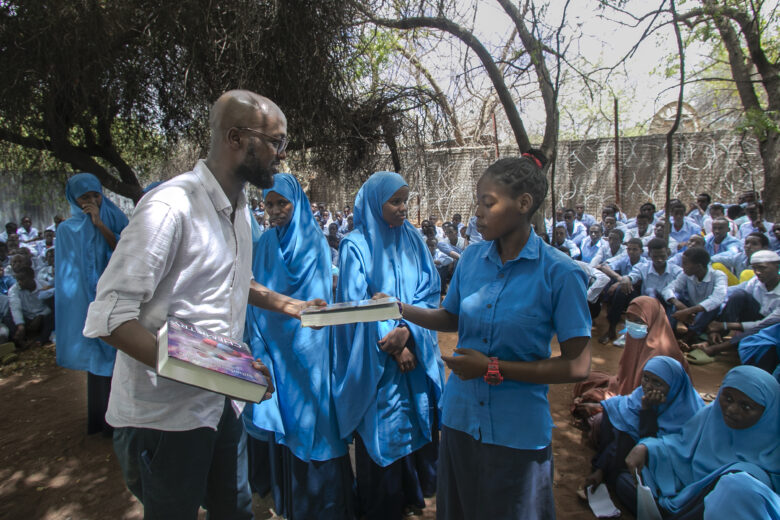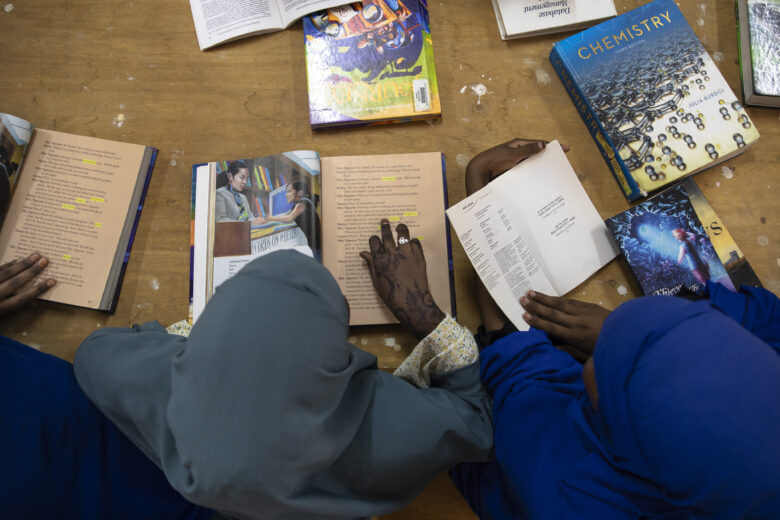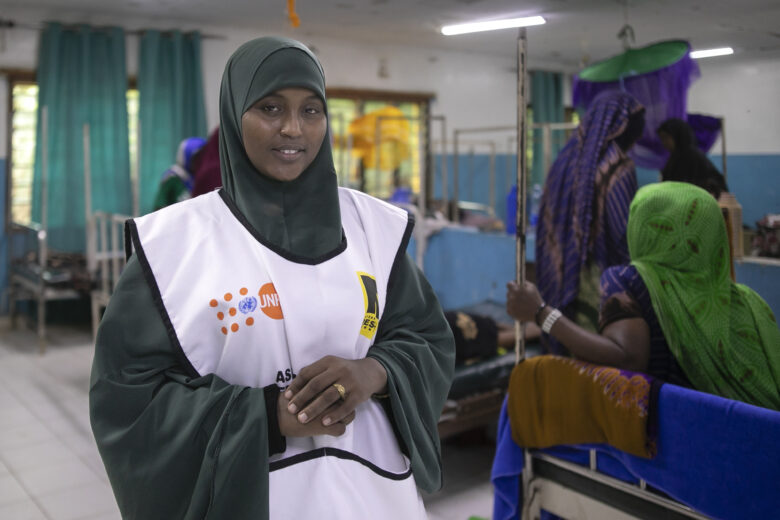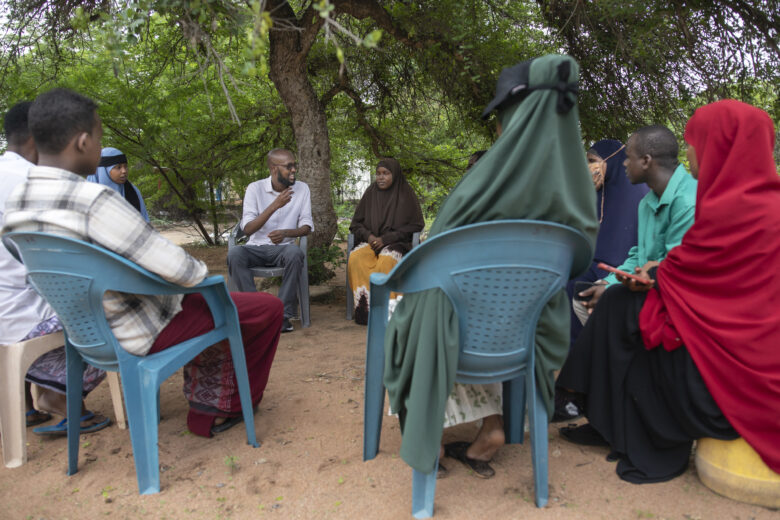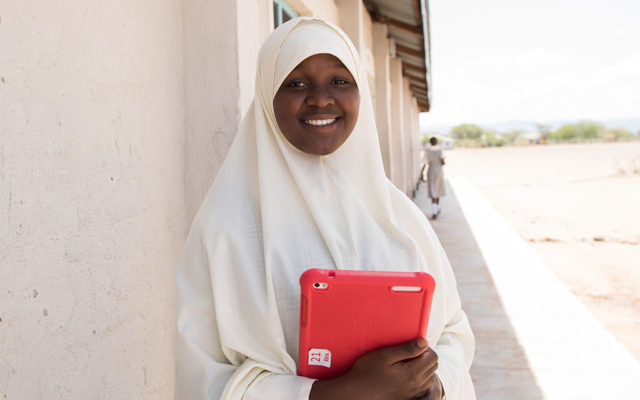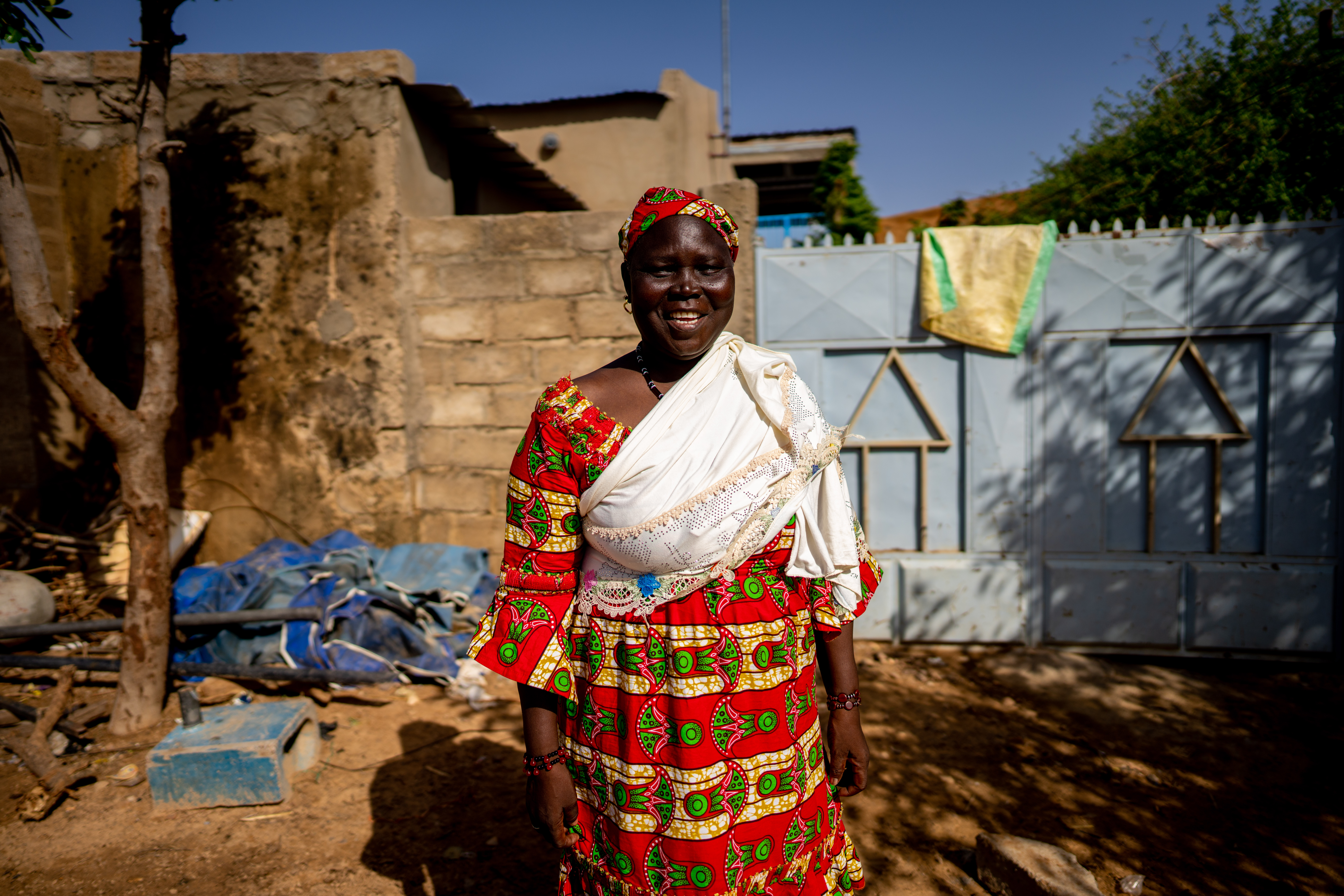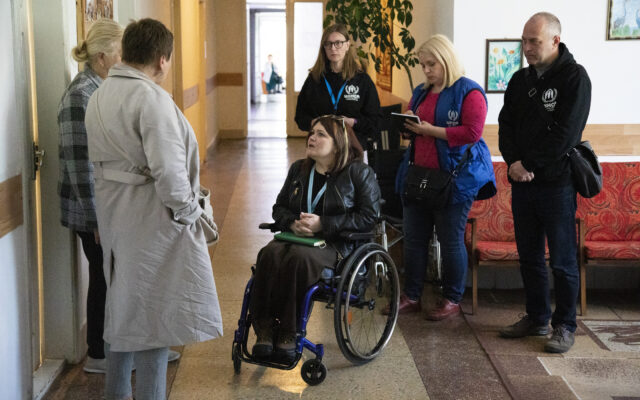Journalist and former refugee wins UNHCR’s Nansen Award for championing refugee education in Kenya
Abdullahi Mire founded a youth-led organization that supports refugee students in Kenya’s Dadaab camp.
30.11.23
The 2023 Nansen Refugee Award winner Abdullahi Mire, 36, in one of the libraries he founded in Kenya’s Dadaab refugee camp.
When Abdullahi Mire first arrived in Dadaab refugee camp in north-eastern Kenya at the age of three, he was fascinated with the letters and words he saw on billboards and on the plastic sheets that covered his family’s makeshift shelter.
“I was a curious child. I was eager to learn how to read the alphabet,” he recalls.
It was 1991 and his family had just settled in the camp after fleeing the civil war in Somalia. Rival clan militias had overrun their hometown of Qoryooley, in southern Somalia, forcing residents to flee the flourishing agricultural town.
Mire’s parents hoped to return home after a short period. They never imagined that Dadaab would become their home for more than two decades – or that it would help shape their young son into a respected journalist and an award-winning refugee advocate.


